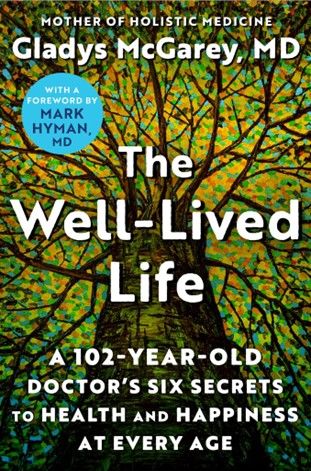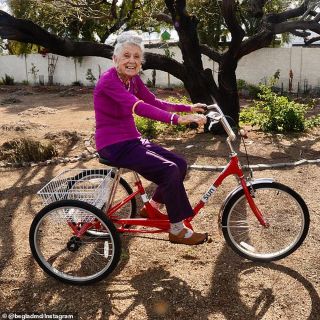Wisdom
Love Is the Greatest Healer
A 103-year-old life coach shares her wisdom.
Updated February 14, 2024 Reviewed by Davia Sills
Key points
- The greatest healer, and medicinal tool, is love.
- Growing up in India, a childhood encounter with Gandhi taught McGarey the meaning of love.
- McGarey's philosophy centers around what she calls the five Ls: life, love, laughter, labor, and listening.
"The greatest healer of all things is love," says Gladys McGarey, a 103-year-old life coach who's been described as the "Mother of Holistic Medicine."
"Many people around the world are reaching for our true humanity. When we find something that makes us feel that way, we grow in love, compassion, and joy."

Dr. McGarey started writing in her 90s, and her latest book, written when she was 102, is titled The Well-Lived Life, in which she shares an inspiring vision for a healthier and more joyful future for us all. That joy came across in every moment of my recent conversation with Dr. McGarey. We hit a great many topics, from her own captivating biography to her philosophy on life, her future goals (she has a 10-year plan), and even how to deal with the state of our world as we start 2024. As a still-practicing professional who began her career before women could even have their own bank accounts, Dr. McGarey shared wisdom laced with perspective and an overarching empathy for all of humanity—most especially women and children.
"The greatest healer of all things is love," she emphasized. "Many people around the world are reaching for our true humanity. When we find something that makes us feel that way, we grow in love, compassion, and joy."
"Look for the light; it ain't going nowhere," she stated with her quintessential sense of humor.
"People get confused and caught up in the dark side," she starts to explain some of her philosophy about humanity. "Let's say I have a flashlight that's bright and working well, and I'm walking down a dark path. I can't go more than one step at a time. But if I can see other lights, that makes my way brighter. Working together, some of us can help others find the light."
McGarey has been reaching for that light from the moment she took her first breath. Born in 1913 at the Taj Mahal (literally, her parents were medical missionaries in India, and her mother went into labor at the famous temple of love), she was raised with a vast worldview and strong role models. "My mother was a physician, but the fact that she was a woman doctor wasn't considered by many—she traveled as dad's 'baggage' back then."

She went to medical school during World War II and started her profession 60 years ago. In 1978, she co-founded the American Holistic Medical Association with the goal of bringing a holistic understanding—one that unites body, mind, and spirit—to modern Western medicine. The Well-Lived Life flips a reader's understanding, so one asks not how to live a life but instead how to turn toward the life that’s within each of us.
"If all the modalities we use [in medicine today] aren't used with love," McGarey warns, "it won't do the same thing. People [today] are scared, angry, confused; it's hard."
Growing up in India, she met Mahatma Gandhi as a child. "Gandhi gave me the experience of love. This taught me that love is real. I spent hours trying to unpack the word 'love' for this book so that it would be understandable. People have been trying to explain love for years in songs and poems, but I finally realized there aren’t words to use that are adequate."
"By his very presence, Gandhi offered me this experience, and it changed me," she recounts. "I’ve spent my life trying to offer the same to everyone I meet."
McGarey's philosophy centers around what she calls the five Ls: life, love, laughter, labor, and listening. She says that the transformative power of love can change anything from something empty and negative, or at least neutral, to something full and positive.
"Love activates and transforms the other four Ls. Consider life. Without love, life is like a little seed. It can be buried for thousands of years, dormant, but then love activates it and makes it grow. Life needs love to grow. Laughter, the third L, is also transformed by love. Without love, laughter is cruel, but with love, it becomes joyful."
"The fourth L is labor. Without love, labor is drudgery, but with love, it becomes bliss–the pleasure of doing something not because you have to but just for the sake of doing it. And the fifth L is listening. Without love, listening is empty silence–we may hear, but we don’t really get it. With love, listening becomes understanding."




